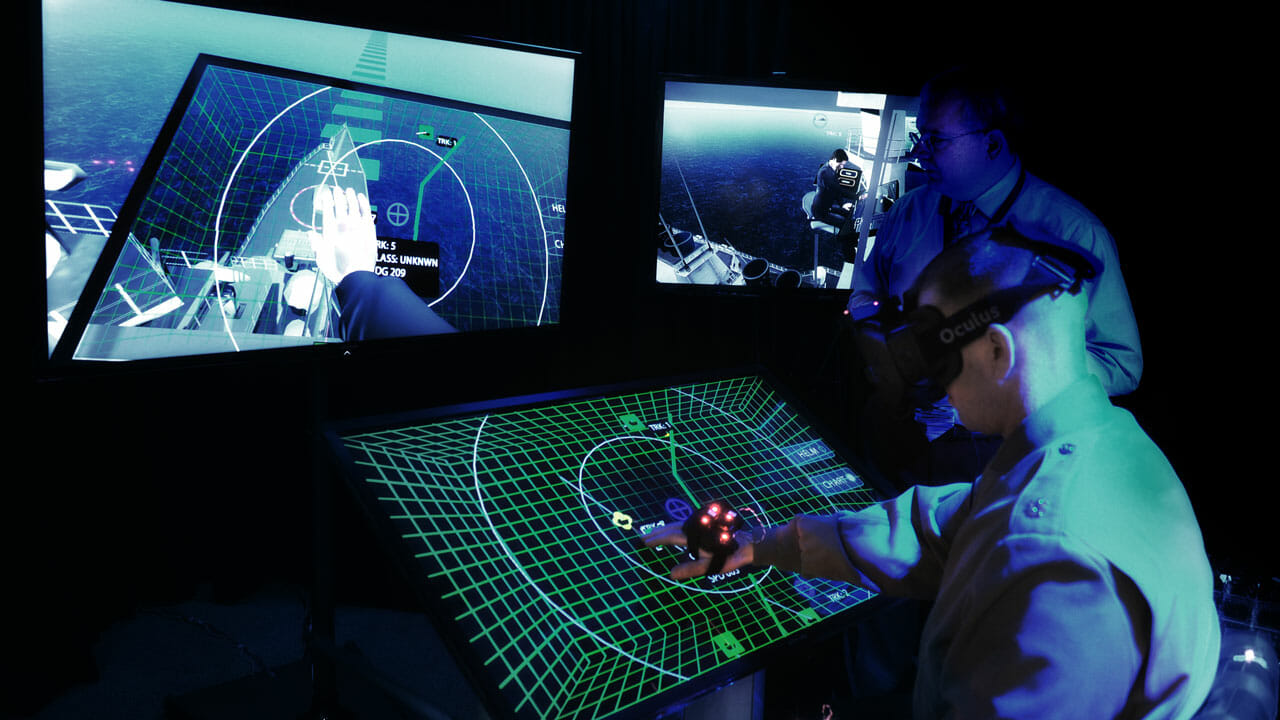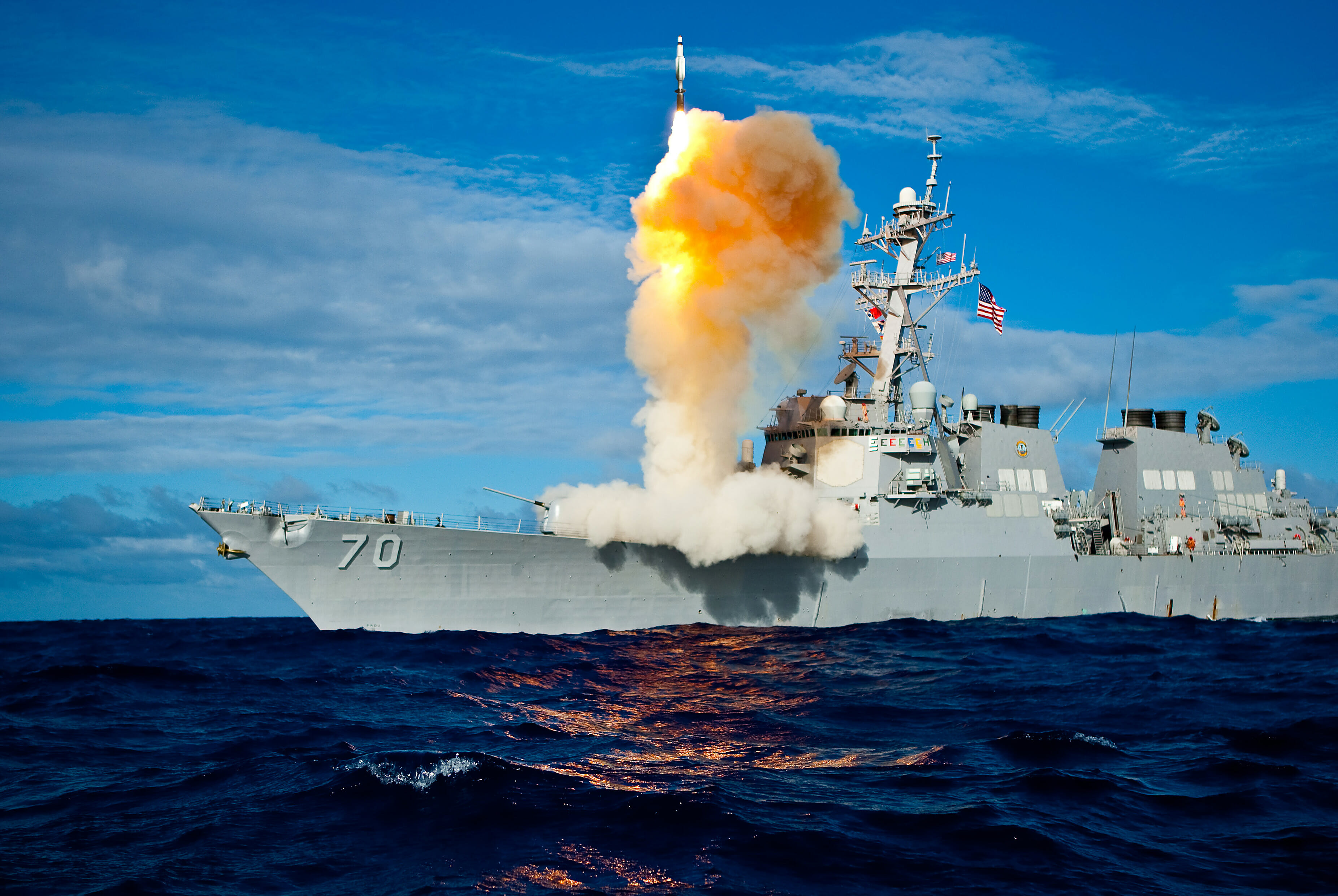Are US Navy Aegis equipped warships being hacked by rogue nations?
US Navy warships have been involved in four separate collisions this year with merchant shipping whilst out on patrol in the Far East.
Is there an evolving Cyber Security problem here that needs to be solved and who would that be a job for, that is the question?
These ships were all United States Navy Aegis-equipped guided missile carrying warships. Aegis BMD (ballistic missile defence) forms the backbone of the US militaries much-touted defensive shield against missile attack.

There is an old saying ‘Once is an accident, twice is a coincidence, three times is a pattern’. So what is actually going on here? First of all lets take a look at some of the hard known facts (the evidence) around this subject.
On 31st January 2017 the USS Antietam (a Ticonderoga-class guided missile cruiser) ran aground while trying to anchor in Tokyo bay damaging its propulsion system.
On May 9th 2017 the USS Lake Champlain (a Ticonderoga-class guided missile cruiser) collided with a South Korean fishing vessel whilst operating near the Korean Peninsula.
On June 17th 2017 the USS Fitzgerald (an Arleigh Burke-class destroyer) collided with Philippine-flagged container vessel MV ACX Crystal around 92 miles southwest of Tokyo, Japan.
On August 21st 2017 the USS John S McCain (an Arleigh Burke-class destroyer) collided with Liberian-flagged oil tanker Alnic MC off the coast of Singapore where it was due to make a stop in port.
As a result of this latest collision an ‘operational pause’ of the entire US fleet was ordered by the chief of the American Navy, Admiral John Richardson in late August 2017.
Lets dive in at the deep end!
So what are we to make of these accidents? Has the US Navy become suddenly far more accident prone than hitherto? Well, that is of course a possibility but one would surely expect that the worlds largest and most advanced Navy would be able to learn from any simple navigational mistakes that occur. It seems curious that warships equipped with the most modern of navigational aids, including the best radar systems and passive sensor systems that money can buy, could appear to be so operationally clumsy.
This all then leads us on to the positing of a theory regarding what is actually going on. The theory is as follows – Are US Navy warships, or merchant vessels in their vicinity, somehow being hacked, leading to these collisions?
As preposterous as this may sound, stop and think for a minute. Hackers are seemingly becoming more powerful day-by-day and are now indisputably going to be working not just for criminal gangs but for state actors too.
What better way would there be for a foreign state actor, opposed to the US Navy throwing its weight around, to display its cyber-warfare hacking ability than by somehow disabling the US Navy’s Aegis-equipped warships?
Perhaps we need to get more used to modern warfare now likely being fought not just on land, sea and in the air but also in Cyberspace.
Impacting on the Cyber Security of a military power is the one and only obvious way that nation states, lacking the overwhelming firepower of the worlds largest navy, can keep on more level terms with them.
How is it possible to cyber attack or hack the navigational systems on-board modern ships or even warships?
Well, it has recently been shown by a well-regarded Security Analyst that ships at sea can seemingly be fooled in GPS ‘spoofing’ attacks. Check out this article at Maritime Executive for example, identifying possible testing of a new GPS spoofing cyber-weapon.
If there is any truth in these reports then this may be just the start of a new form of electronic warfare that anyone from rogue nation states to petty criminals may employ in future, potentially to devastating effect.
If it is possible to make ships at sea change course then it will surely be possible to impact aircraft autopilots and other autonomous systems such as driverless trains and other vehicles, wreaking havoc upon the transport systems not just of today but, in an ever more driverless world, on the transport technology of the future too.

US Navy Aegis Warship at sea
Countering these fast-emerging cyber threats
To counter such threats it is vital that any nation worried about its security should promote the importance of online and IT security upon its population.
They should also make sure that training of students in the fast emerging discipline of Cyber Security, and related job roles, is made a priority. As new roles in Cyber Warfare will need filling, experts in cyber-weapons and IT Security will likely become more sought after, with pay and perks surely reflecting their new found importance in the modern workplace.
At the moment, Cyber Security recruitment organisations such as www.cybersecurityjobs.net are still being relied on as the torchbearers for a rapidly rising new industry sector, with Cyber Security jobs ranging from Security Architect to Cryptographer. Perhaps it is time for our governments to heed this advice and take more action by creating new study courses and job roles, to protect their interests, before that door closes on them!
It is best to be prepared for all eventualities than to not see this particular elephant in the room! That elephant, in my humble opinion, is currently Cyber Securities potential impact on the safety of all developed nation states and their populations.
